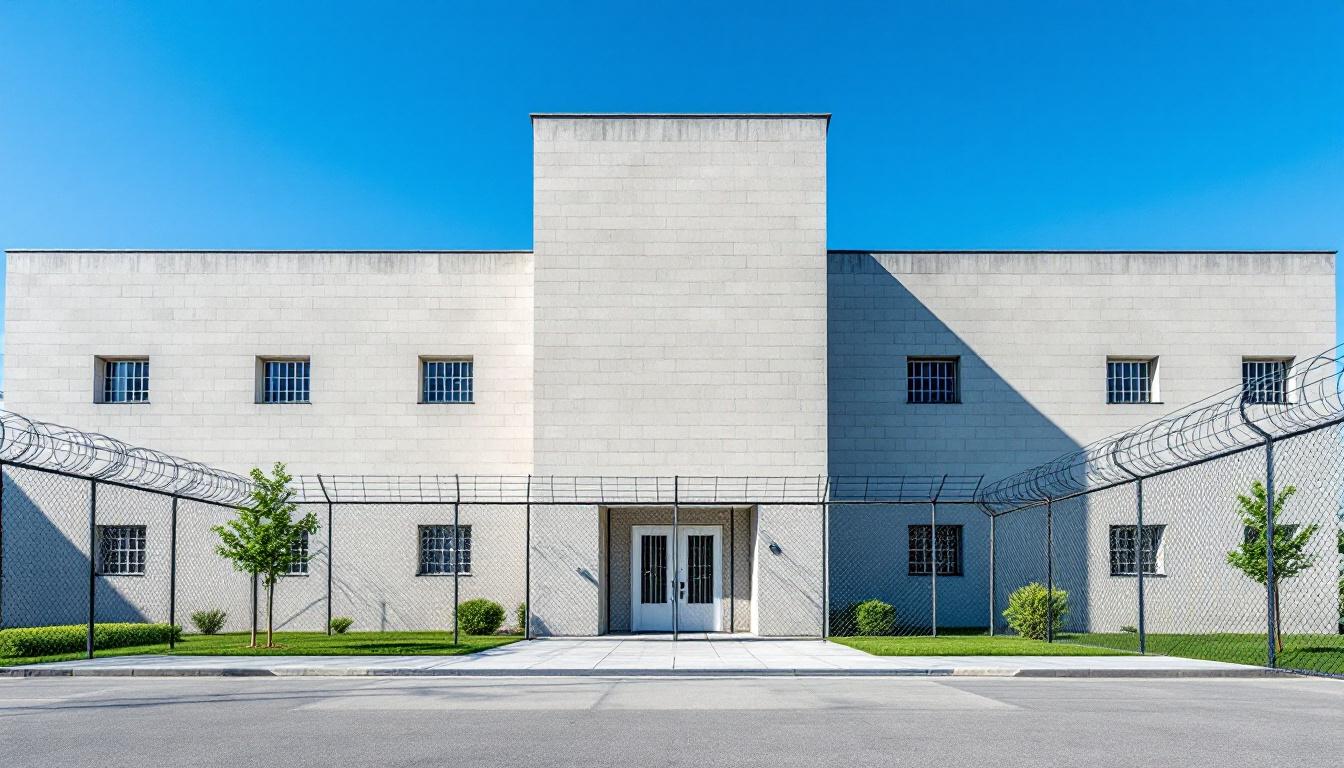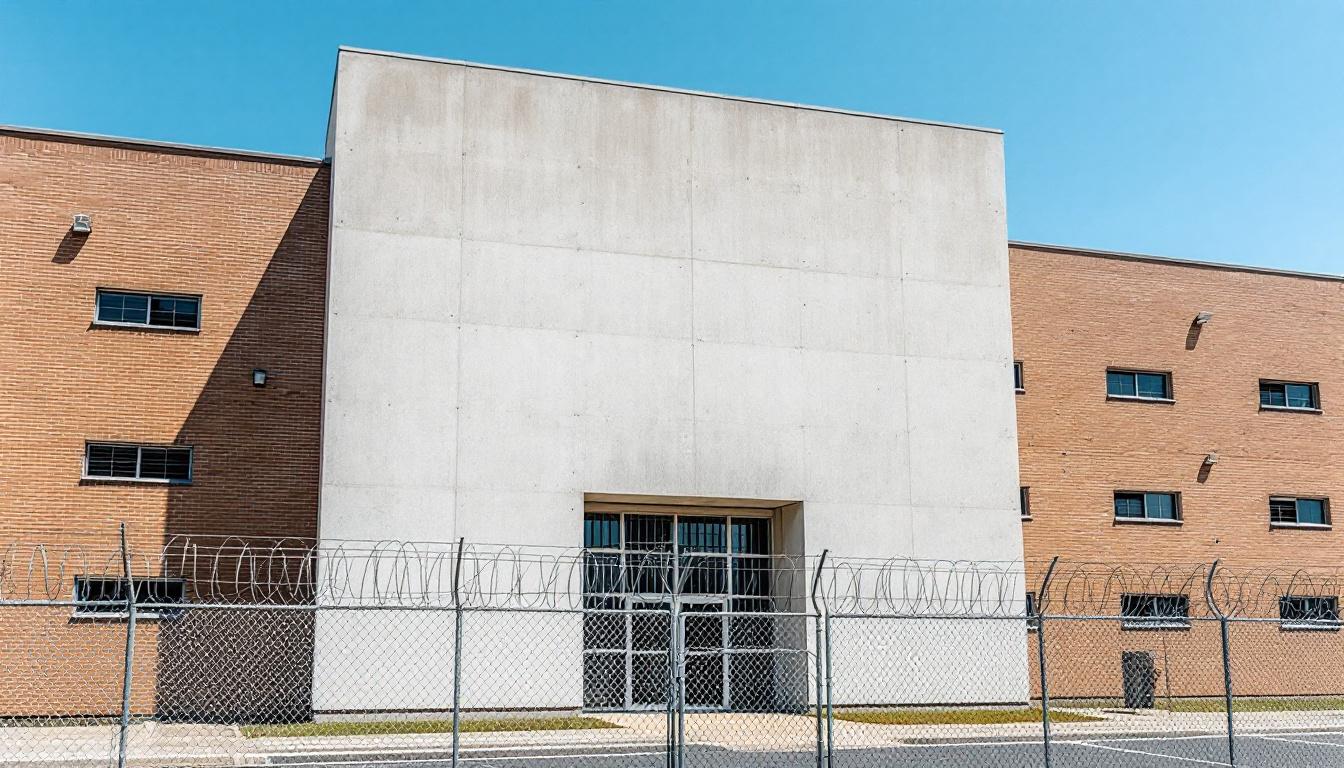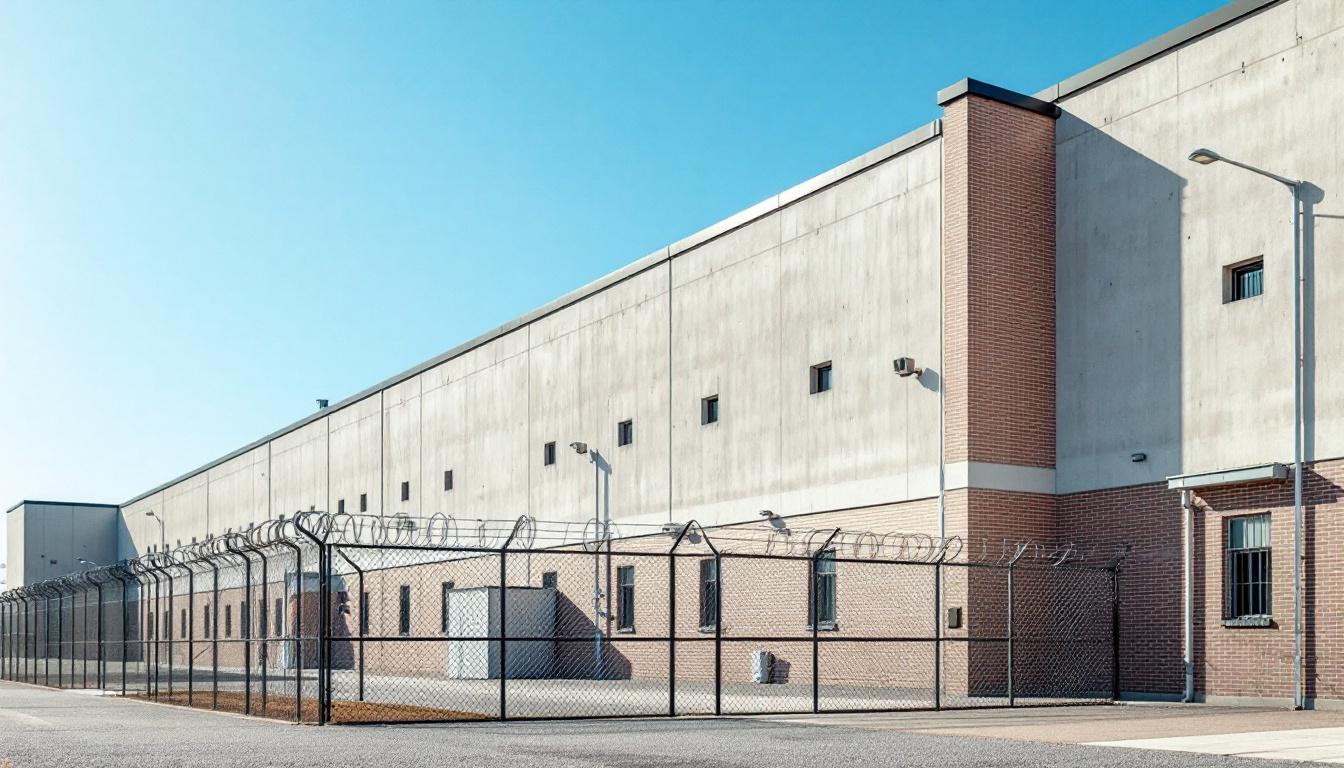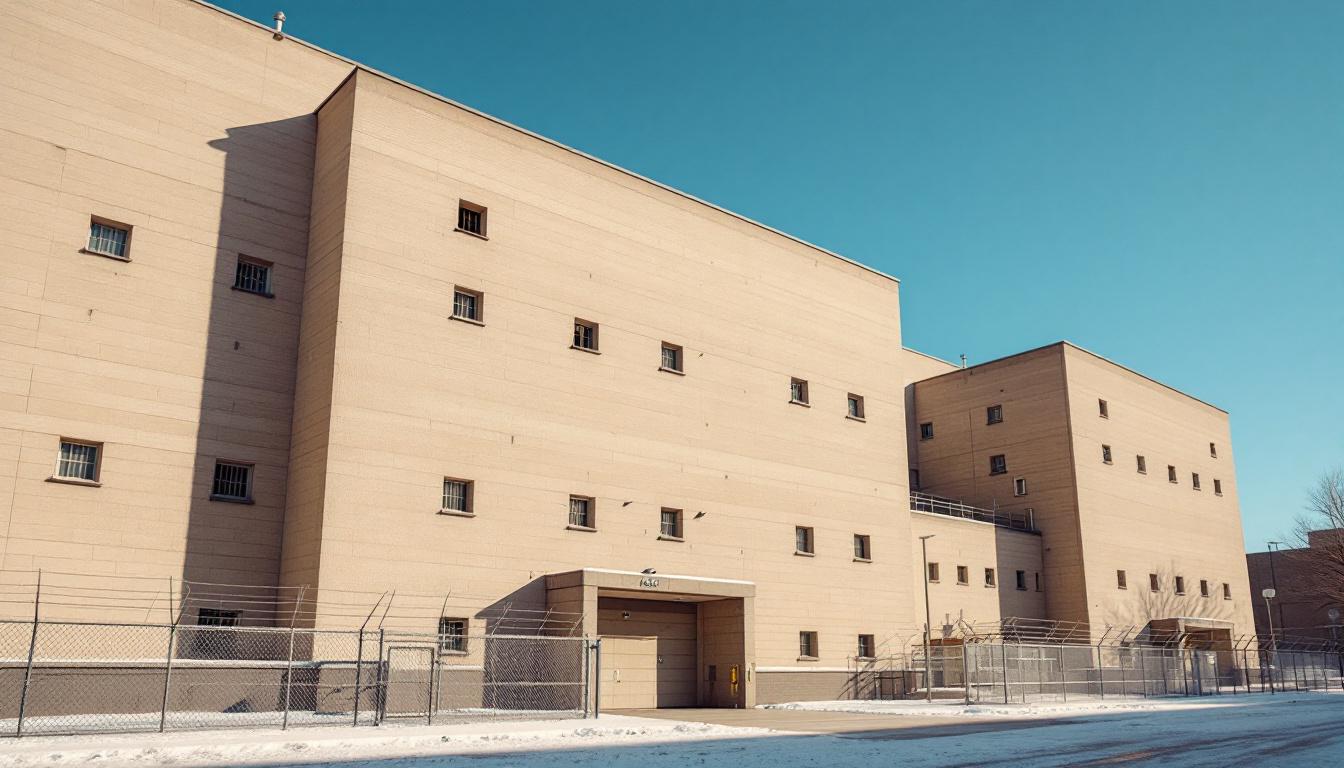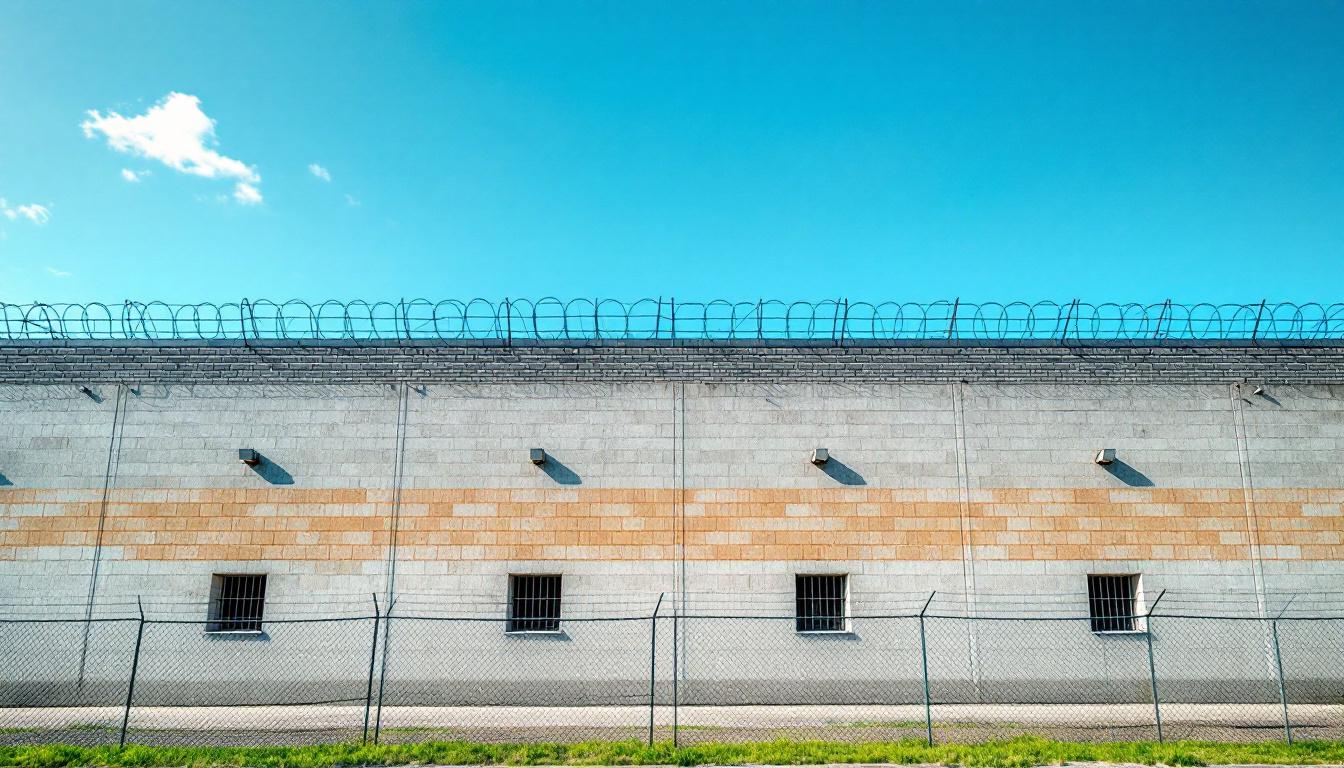
Quick Navigation
How to contact an inmate at Bremer County Sheriff
This comprehensive guide will walk you through how to connect with an inmate at Bremer County Sheriff. Follow the steps below to find an inmate and send letters and photos:
- Search for the inmate using our search tool below
- Create your account or log in to Penmate
- Write your message (up to 6,000 characters)
- Send instantly - inmates receive printed copies daily
Find an Inmate
Search for an inmate to start communicating today
Tip: You can search by first name, last name, or inmate ID number
To contact a person at Bremer County Sheriff start by searching for the person on the official facility website. Perform a search by following these steps:
- Step 1: Enter their first name and last name into the search form and click "Search"
- Step 2: Locate their inmate record
- Step 3: Write down their Inmate ID and any housing information provided
Important! Be sure to enter the person's full name. Nicknames should not be used.
How to Send Messages to Inmates

You can use your phone or computer to send emails, letters, and photos to an inmate. Messages are sent electronically to inmate tablets or kiosks at the facility. If you would like to send a message, start by searching for an inmate at Bremer County Sheriff.
Sending Photos and Postcards

A great way to send love and support to a loved one at Bremer County Sheriff is to send photos and postcards. It only takes a few minutes to send photos from your phone and it makes a huge difference. You can also mail postcards with words of support and inspiration, or design your own postcard for special moments like birthdays and holidays.
Important! Be sure not to send any explicit photos or they may not be approved by the facility. You can also use a photo printing app like Penmate to make sure your photos are printed at the correct size (4x6 or 3x5) and are mailed according to the rules and regulations of Bremer County Sheriff.
Frequently asked questions about Bremer County Sheriff
-
How long does it take to deliver a message?
If you're sending an email message your letter is usually delivered within 24-48 hours. For messages sent via mail you should expect delivery within 3-7 days. All messages will need be approved by Bremer County Sheriff.
-
How much does it cost to send a message to Bremer County Sheriff?
You can send a message free using your phone or mail a message via USPS for the price of a $0.60 stamp and envelope. You can also purchase credits or e-stamps from services starting at $1.99.
-
What services can I use to contact an inmate at Bremer County Sheriff?
Penmate
You can use Penmate to send letters and photos to an inmate from your phone. It's an easy way to stay in touch during your loved one's incarceration. Use the inmate locator to find an inmate's location and contact information, then you can send messages within a few minutes.
Securus messaging
Securus may be another option for communicating with an inmate at Bremer County Sheriff. You can create a friends and family account and purchase credits to send messages. All messages will be reviewed and must be approved by the facility.
JPay
Some county jails and state prisons may support sending messages with JPay. You must register an account with the system, find your loved one, and purchase stamps to send messages. For some locations you can also attach photos.
Smart Jail Mail
You may also check if Smart Jail Mail is available at Bremer County Sheriff. Smart Jail Mail is operated by Smart Communications and has contracted with some state and county jails. After purchasing credits, your messages and photos are sent to the facility, printed out, and then handed out to your loved one.
-
What is the mailing address of Bremer County Sheriff?
Mailing address:
Bremer County Sheriff
111 4th St NE
Waverly, IA 50677
Phone: (319) 352-5400Business hours:
- Monday: Open 24 hours
- Tuesday: Open 24 hours
- Wednesday: Open 24 hours
- Thursday: Open 24 hours
- Friday: Open 24 hours
- Saturday: Open 24 hours
- Sunday: Open 24 hours
-
What are the visiting hours at Bremer County Sheriff?
Visiting hours at Bremer County Sheriff vary by housing unit and security level. Generally, visits are scheduled on weekends and holidays, with some facilities offering weekday visits. Contact the facility directly at (319) 352-5400 or check their website for the current visiting schedule. Visits typically last 30-60 minutes and must be scheduled in advance.
-
What items are prohibited when sending mail to Bremer County Sheriff?
Prohibited items typically include: cash, personal checks, stamps, stickers, glitter, glue, tape, staples, paperclips, polaroid photos, musical or blank greeting cards, hardcover books, magazines with staples, and any items containing metal or electronics. Only send letters on plain white paper with blue or black ink. Photos must be printed on regular photo paper (no Polaroids). Always check with Bremer County Sheriff for their specific mail policies.
-
How do I send money to an inmate at Bremer County Sheriff?
You can send money to an inmate at Bremer County Sheriff through several methods: 1) Online using JPay, Access Corrections, or the facility's approved vendor, 2) Money orders mailed directly to the facility with the inmate's name and ID number, 3) Kiosks located in the facility lobby, or 4) Over the phone using a credit or debit card. Fees vary by method, typically ranging from $2.95 to $11.95 per transaction.
-
Can I schedule a video visit with an inmate at Bremer County Sheriff?
Many facilities now offer video visitation as an alternative to in-person visits. At Bremer County Sheriff, video visits may be available through services like Penmate, Securus Video Connect, GTL, or ICSolutions. Video visits typically cost $10-20 for 20-30 minutes and must be scheduled in advance. You'll need a computer or smartphone with a camera and reliable internet connection. Contact the facility for their specific video visitation policies and approved vendors.
-
What identification do I need to visit an inmate at Bremer County Sheriff?
All visitors must present valid government-issued photo identification such as a driver's license, state ID, passport, or military ID. Minors must be accompanied by a parent or legal guardian who can provide the minor's birth certificate. Some facilities require visitors to be on the inmate's approved visitation list, which may require a background check. Contact Bremer County Sheriff for specific ID requirements and visitor approval procedures.
-
How can I find out an inmate's release date?
To find an inmate's release date at Bremer County Sheriff, you can: 1) Use the online inmate search tool if available, 2) Call the facility's records department, 3) Contact the inmate's case manager or counselor, or 4) Have the inmate provide this information during a call or visit. For privacy reasons, some facilities only release this information to immediate family members.
Facility Overview
Official Website

About Bremer County Sheriff
County jails throughout Iowa's correctional network serve as critical detention facilities for individuals awaiting trial or serving shorter sentences, and the Bremer County Jail, IA exemplifies this essential role within the state's broader corrections framework. Located in Waverly, this IA correctional facility operates as part of the regional system that spans across Iowa's rural and urban communities, maintaining secure custody while balancing the practical needs of both detainees and the surrounding community. The facility typically handles pre-trial detention, sentenced individuals serving terms of one year or less, and those awaiting transfer to state institutions, positioning it as a vital component in Iowa's multi-tiered approach to corrections and public safety.
Within Waverly's municipal landscape, the jail generally maintains operations that reflect the community-oriented nature of county-level corrections, often emphasizing connections between detainees and their families while ensuring appropriate security measures. The population services may include basic medical care, educational opportunities, and substance abuse programming, though specific offerings typically vary based on available resources and individual needs assessments. As part of the midwest region's correctional infrastructure, the facility often coordinates with state agencies, local courts, and community organizations to facilitate court appearances, family visitation, and preparation for eventual reintegration into the community, reflecting the dual mandate of secure detention and rehabilitation support that characterizes modern county jail operations.
Programs & Services
Support services at Bremer County Jail are designed around helping the population develop essential skills and address underlying challenges that may have contributed to their incarceration. The facility typically recognizes that meaningful change requires comprehensive programming that addresses educational gaps, personal development, and therapeutic needs. Through various programs, participants often have opportunities to work toward positive outcomes that benefit both their personal growth and successful community reintegration.
Educational services form a cornerstone of the jail's programming approach. The population may access adult basic education classes that help individuals strengthen fundamental academic skills. GED preparation programs are often available for those seeking to complete their high school equivalency. In addition to this, ESL (English as Second Language) services typically support participants whose primary language is not English. Vocational programs may also be offered to help the population develop practical job skills that can improve employment prospects upon release.
Mental health services are often provided to address therapeutic needs within the facility. These programs typically focus on helping participants understand behavioral patterns and develop healthier coping strategies. Victim awareness programs may supply opportunities for the population to examine the impact of their actions on others and the broader community. Through these various support services, the jail often aims to create an environment where participants can work toward positive change while maintaining connections to family and preparing for successful reentry into the community.
Daily Life & Visitation
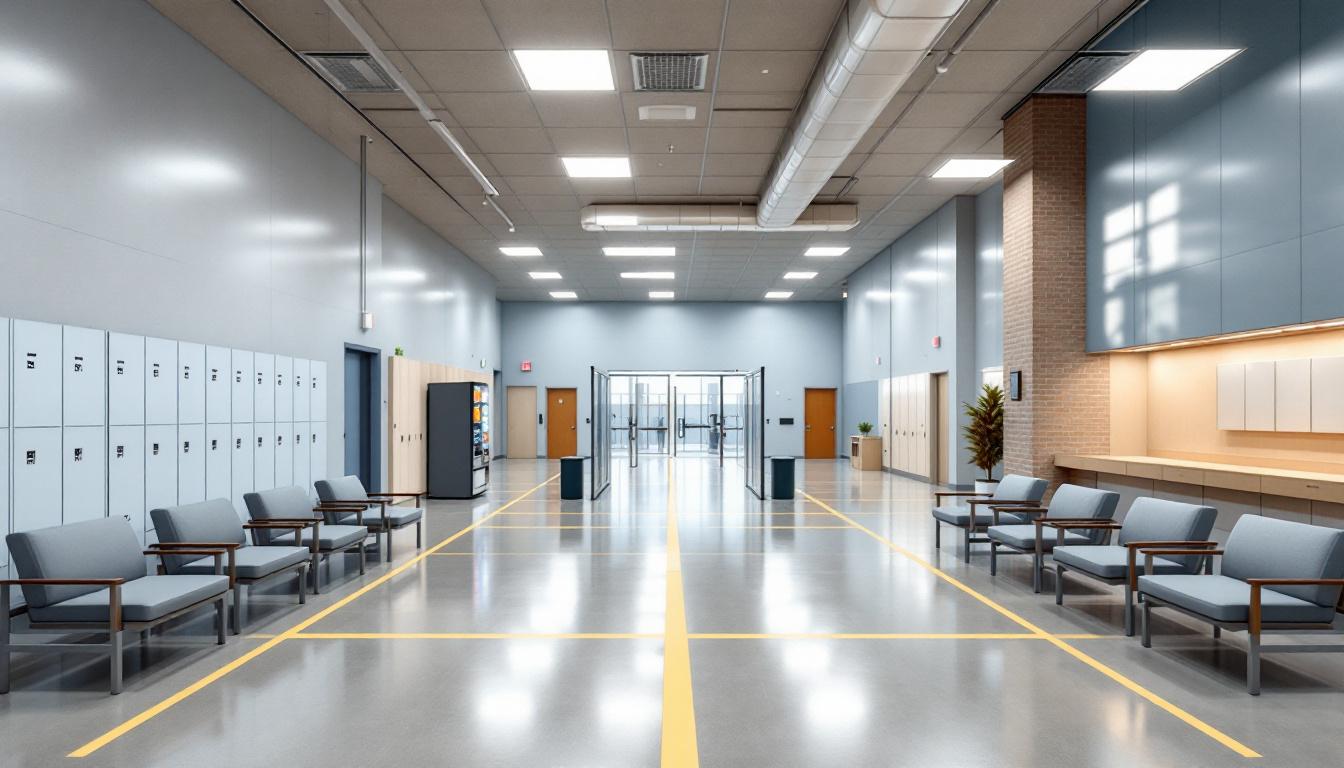
Systematic organization now shapes every aspect of the population's experience at Bremer County Jail, with structured schedules that regularly guide residents through their daily activities. The facility typically operates on a regimented timeline that includes designated periods for meals, programming, recreation, and rest. Count procedures occur at regular intervals throughout the day, ensuring accountability while maintaining security protocols. Work assignments generally supply additional structure, with residents often participating in facility maintenance, kitchen duties, or cleaning responsibilities that contribute to daily operations.
Housing arrangements typically place residents in dormitory-style units or individual cells, depending on classification levels and available space. The population generally shares common areas for dining and recreation, with meals served at scheduled times in a central dining facility. Personal property allowances usually include basic hygiene items and limited personal belongings, while commissary services may offer additional items for purchase. Living spaces often include basic furnishings and may provide television access during designated hours.
In addition to this structured routine, recreational opportunities typically include access to exercise areas, television programming, and reading materials from the facility library. Visitation policies generally allow scheduled visits from family members and approved contacts, while telephone access may be available during specific hours. Educational programming often supplies additional structure through classes or counseling sessions, depending on available resources. Despite this regimented environment, communication with family members remains an important component of daily life, with mail services and telephone privileges helping residents maintain connections with their support systems outside the facility.
Ready to Connect?
Start communicating with your loved one today
Search for an Inmate


